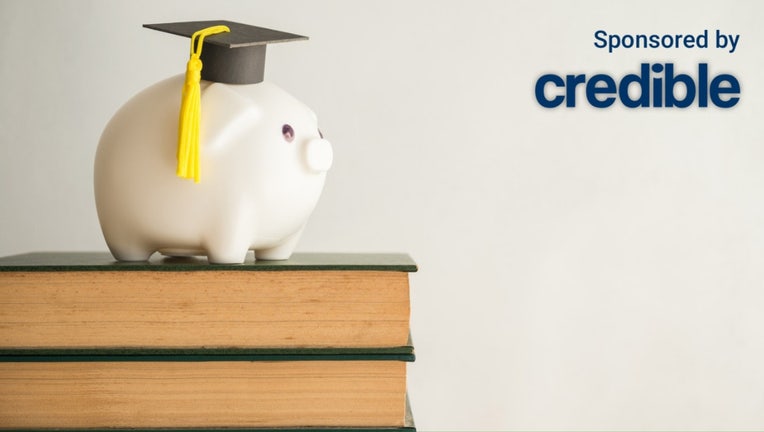New student loan laws can help borrowers manage better in 2024

Initiatives going into effect in 2024 are designed to help student loan borrowers make a dent in their debt balance. (iStock)
The student loan battle rages on as we enter 2024, with key laws going into effect to help borrowers manage their student loan debt.
One of the first laws, which went into effect on January 1st, is the Secure Act 2.0, Section 110. The initial act was passed in 2022, but certain provisions aren’t set to kick in until 2024, 2025, 2026 and 2027. The act is intended to build on the original Secure Act passed in 2019, designed to help Americans prepare for retirement.
"It’s impossible to ignore the long-term financial impact student loan repayments can have on employees across all generations," President of Nationwide Retirement Solutions Eric Stevenson said in a press release. "The good news is [the] Secure 2.0 Act now allows employers to provide matching retirement plan contributions based on the amount of an employee’s student debt repayments."
Section 110 permits employers to match an employee’s student loan payment with retirement plan contributions. To help Americans balance student loan debt and retirement contributions, borrowers are encouraged to pay down debt, in exchange for retirement contributions from their employer.
An employer can only match up to plan limits they specify. If your employer sets a retirement account match up to 5%, that’s how much of the payment they’ll match.
To make your student loan payments more affordable, consider refinancing with a lower interest rate. Credible can help you check your rates from multiple lenders all in one place. Plus, your credit score won’t be affected.
STUDENT LOAN BORROWERS STRUGGLE TO KEEP UP WITH MONTHLY PAYMENTS: STUDY
Certain payments paused as the government resolves servicer issues
On January 5th, the Biden-Harris Administration announced its withholding payments to certain loan services in response to continued errors on the servicers’ part.
The Administration is withholding payments from Aidvantage, EdFinancial and Nelnet. The amount being withheld is $2 million, $161,000 and $13,000, respectively. Each of these companies either failed to meet contractual obligations or sent billing statements late to a total of 758,000 borrowers.
"Today’s actions make clear that the Biden-Harris Administration will not give student loan servicers a free pass for poor performance and missteps that jeopardize borrowers," Miguel Cardona, the U.S. Secretary of Education, said in the announcement. "As millions of Americans return to repayment, the Department of Education will continue to engage in aggressive oversight of student loan servicers and put the interests of borrowers first. When unacceptable errors are uncovered, servicers should expect to be held accountable and borrowers should count on this administration to hold them harmless."
This isn’t the first time payments have been withheld from servicers. In October 2023, $7.2 million was withheld from the Higher Education Loan Authority of the State of Missouri (MOHELA) after they didn’t send bills or sent billing statements late to 2.5 million borrowers.
If you’re struggling to make your monthly student loan payments, a lower interest loan can help cut your payments down. Refinancing through a private lender can potentially secure you this lower rate. If you’re considering refinancing, make sure to compare student loan refinancing rates with the help of Credible before you apply, so you can make sure you find the best deal for you.
NEW FAFSA REVEAL COMES WITH COMPLICATIONS, DELAYS
Other student loan repayment options intend to help borrowers
In response to student loan forgiveness getting struck down, the federal government has put a few different initiatives in place to make student loans easier to manage.
The Biden-Harris SAVE plan was a welcome step in August 2023. It offers more affordable monthly payments for some borrowers, no payments for a select few, no interest build-up and a potential fast-track to student loan forgiveness.
Another move that resulted in forgiveness for hundreds of thousands of borrowers was the IDR payment count adjustment. Borrowers taking part in federal student loan income-driven repayment plans, the Public Service Loan Forgiveness (PSLF) program and the Direct or Federal Family Education Loan (FFEL) Program will have their qualified payments adjusted and time added toward their forgiveness, resulting in completion of payoff.
The adjustment will continue through July 2024, allowing more borrowers to qualify for forgiveness if they enroll by the deadline.
If you have private student loans, unfortunately, federal relief doesn't apply to you. If you're looking to lower monthly payments and ease the burden of student loan debt, then consider refinancing your student loans. Lock in some of the lowest interest rates ever via the online marketplace Credible.
THESE ARE THE 5 STATES WITH THE HIGHEST AND LOWEST STUDENT LOAN DEBT BALANCES
Have a finance-related question, but don't know who to ask? Email The Credible Money Expert at moneyexpert@credible.com and your question might be answered by Credible in our Money Expert column.

